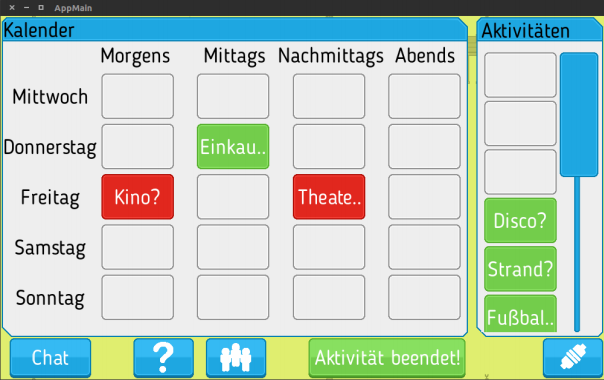Terminkalender Stats
Luis, 05 August 2019
During a degree, it is common to do some business practices in order to apply the knowledge you have obtained in a real-world context. In my case, during the third year of my Computer Science degree, I was focused on this project, which I’m going to explain for a while.

Terminkalender is a project driven by Universidad de Cádiz. As a final project of his degree, the student Javier Osuna developed a libGDX app which runs on PC as well as Android mobile phones. This app has an educational purpose: it would be used by students of Universidad de Cádiz German subject. They would have to use the in-app chat to meet other classmates, agreeing what, when and who to do with, trying to write on German applying language techniques learnt through subject temary.

My contribution to this project was based on, in addition to implement some features to the app, making a deep data analysis of what students talked about.
I had to develop a Python script, which does the following tasks:
-
Preprocess the entire logs produced by the application: due to the fact that we’re talking about a chating app, extracting conclusions of how students use German language is a pretty difficult task; so try to unify the most of the chats was mandatory (such as simplify all laughts - I mean haha, jajjaja, jaajaja, jejjeje, hihihi… - to “jajaja” in order to count how many times students had fun).
-
Keep track of more than 20 different metrics from three different perspectives: globally, per student and per student pair.
-
Produce an output which reflects every single metric.
Moreover, there was a paper version of the app, making interesting to compare the results between app and paper. Paper chats was reflected in Excel files, so I had to adapt the script to read the same information but through a spreadsheet instead of a log.txt.
Thanks to this, the Universidad de Cádiz IT Deparment could make an study about the impact of the application in students, proving that this initiative helps students to learn German.
If you are interested in knowing more about this project, you can visit my GitHub repo, where you can find the source code of the Python scripts, the details of preprocessing stage and metrics analyzed, and so much more!